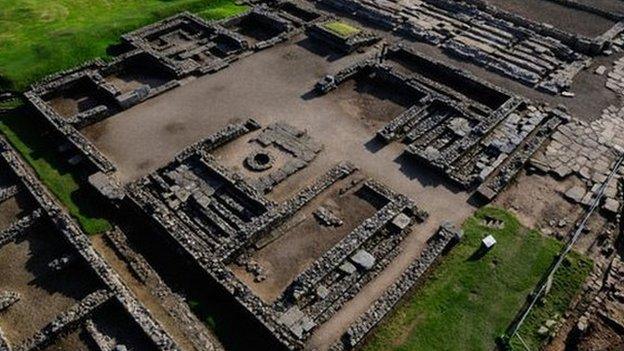Roman dog with fur intact dug up at Vindolanda fort
- Published
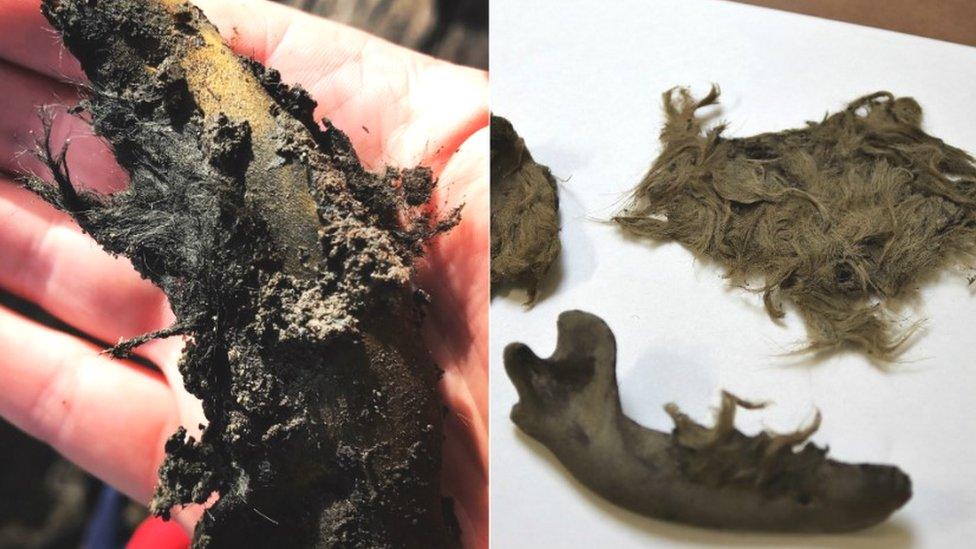
The dog's jaw bone (left) and bits of bone with fur still attached were unearthed as part of the haul
The 2,000-year-old remains of a dog with its fur still intact have been found at a Roman fort.
The rare find was made at Vindolanda, Hexham, near Hadrian's Wall in Northumberland, and has been sent for analysis to determine the dog's breed.
It was part of a haul made by a team of 400 volunteers who pay for a place to excavate at the site each year.
Other finds included an 1,800-year-old skull of a beheaded native Briton that was stuck on a spike.
A spokeswoman said the fact the dog's fur was so well-preserved was "incredible".
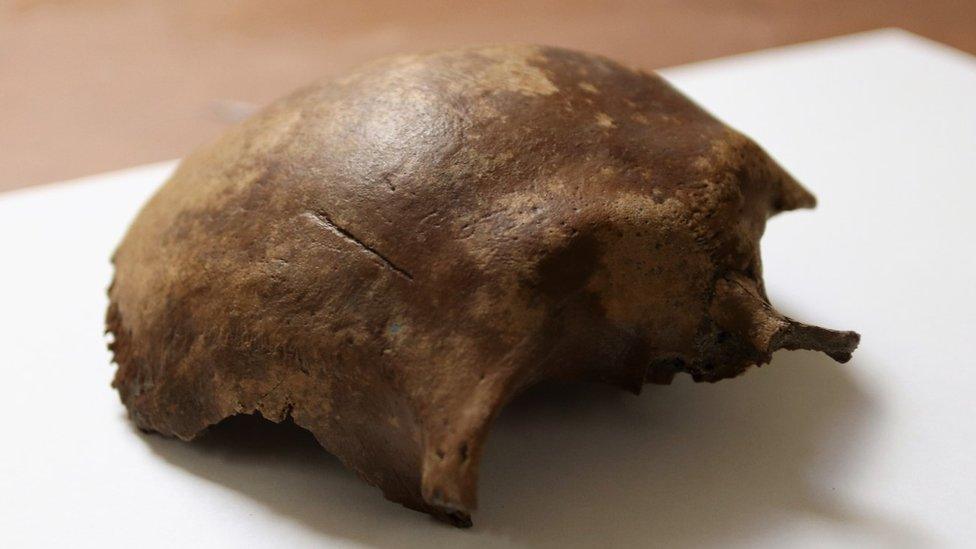
"Trophy head-taking" was common among Roman auxiliary soldiers
The top part of the human skull also found showed evidence of numerous wounds including sword injuries.
Dr Andrew Birtley, chief executive officer at the Vindolanda Trust, said: "This individual came from the north-west of Britain, as determined by isotope analysis of his teeth.
"The damage patterns to this skull show clearly that his head was decapitated and then placed on a stake after death, which came about through a series of violent wounds to both sides of his head."
He said "trophy head-taking" was common among Roman auxiliary soldiers.
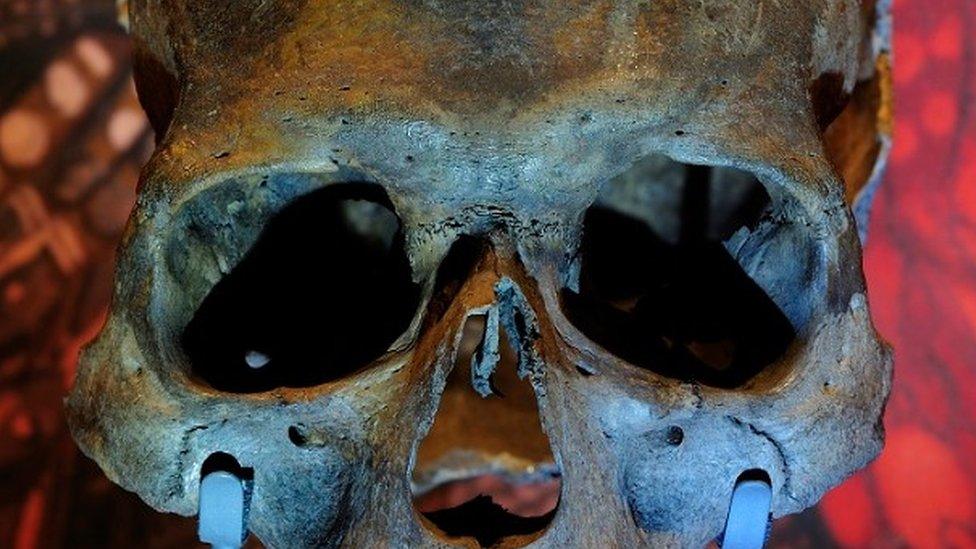
It has been several years since a human skull has been found at the site
Another artefact found during this year's dig was a solid silver brooch in the shape of a duck dating back more than 1,800 years.
A spokeswoman for the Vindolanda museum said: "The native British design of the brooch can be traced back hundreds of years prior to Roman occupation.
"The duck was a symbol of honesty, simplicity and resourcefulness - we probably all need to channel our inner duck."
She said that there had been so much interest in the brooch that the museum was making replicas to sell.
All the finds will go on display next year.
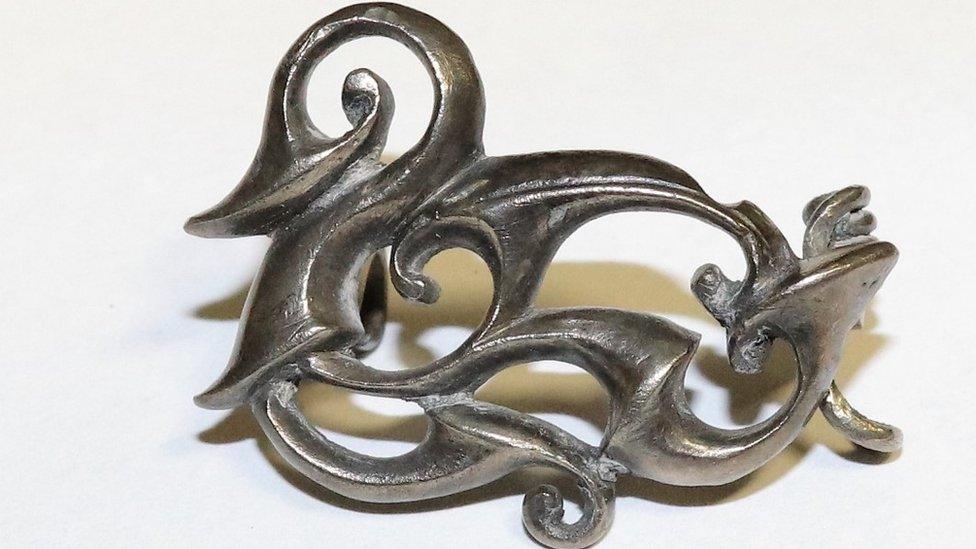
The well-preserved duck brooch has generated so many inquiries that the museum has ordered replicas be made
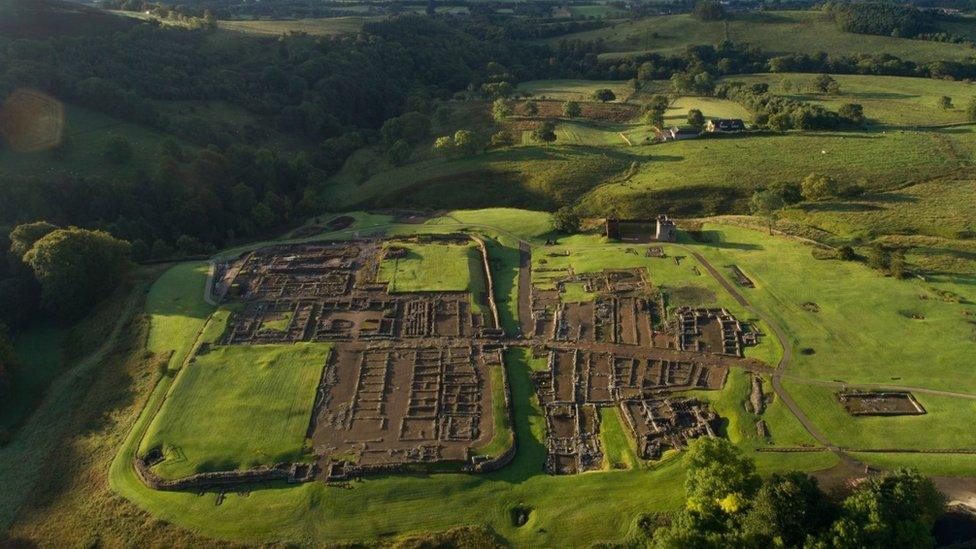
Excavation places at Vindolanda costing £150 were snapped up within minutes
- Published4 August 2018
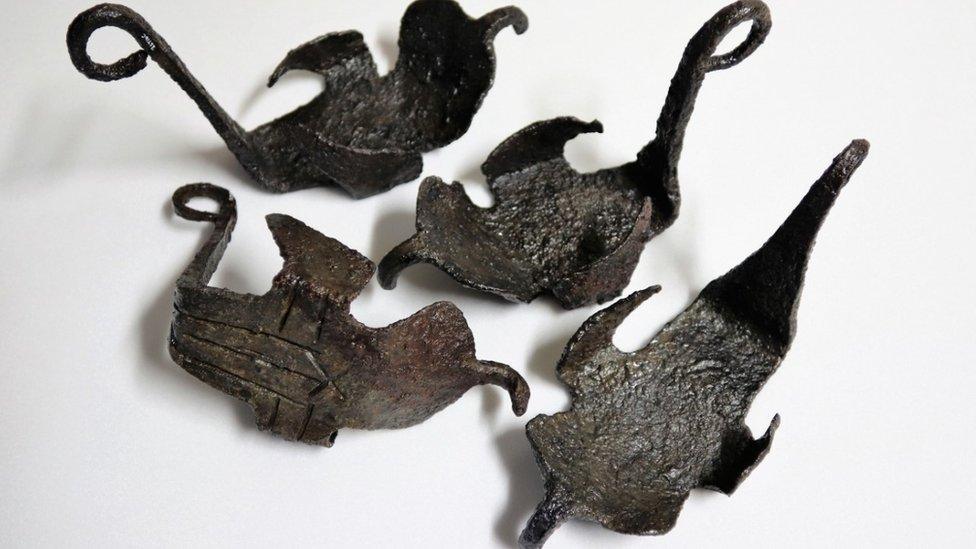
- Published20 February 2018
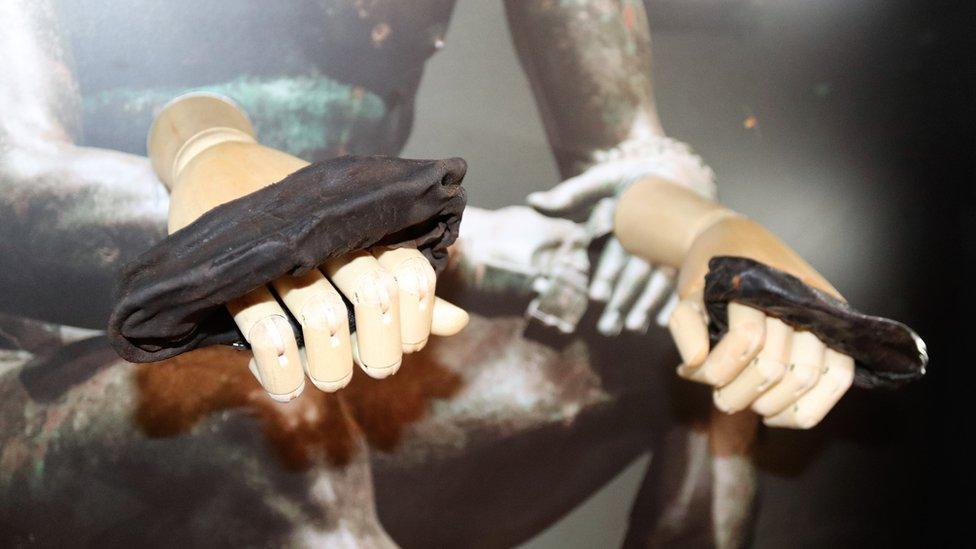
- Published11 September 2017
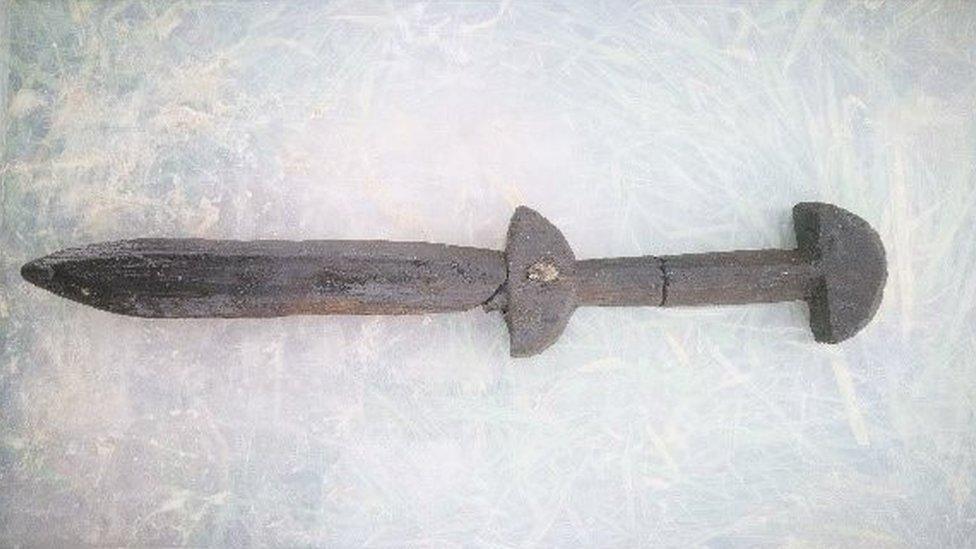
- Published10 July 2017
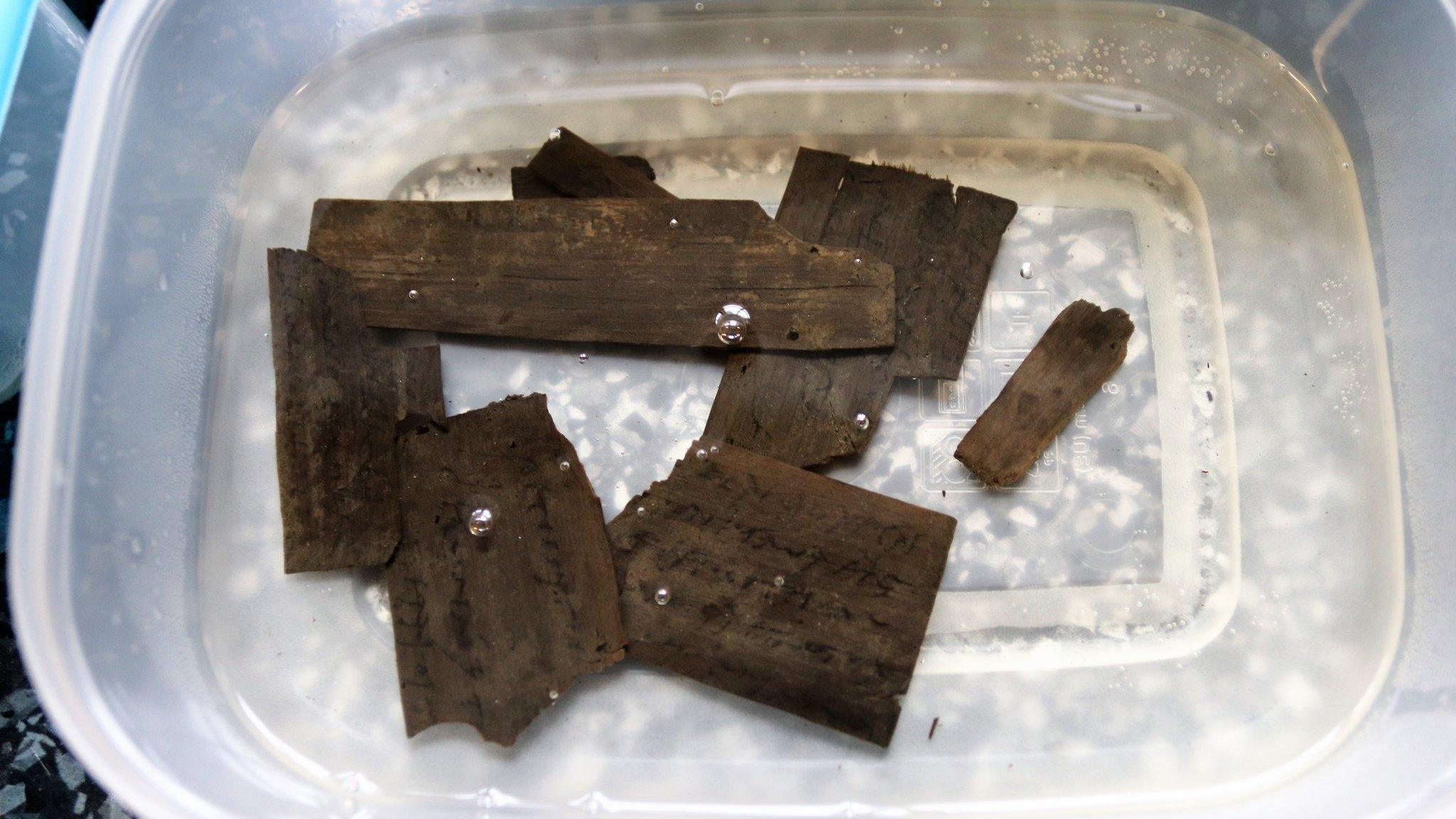
- Published28 March 2015
